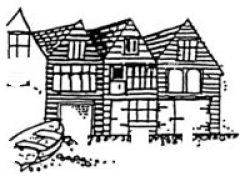A note on the determination of beach hut prices on sites rented from the Council
It has been said that the price of beach huts is just a market outcome and nothing to do with the Council. Nothing could be farther from the truth.
The cost of a new beach hut is no more than £2000: even for the fanciest. When someone buys a beach hut for £10,000, they are not buying just the hut in their perception. They are buying primarily what they think is the right to rent the site from the Council in perpetuity (and indeed to pass on that right to their heirs) and the right to sell-on this ‘right’ in perpetuity : as that is the way things are run at present.
The excess of the market price of about £8000 over the cost of building a hut is caused exclusively by the practice of permitting existing annual license holders to have the Foreshore Office transfer the annual licence to anyone who the present lessee chooses automatically (ie to the person prepared to pay £10,000). The license clearly states that any transfer is subject to the approval of the Council and therefore the Department of Community Services has every legal right to restrict transfers in any way it chooses.
It is therefore the Council that is causing the high price of huts on Council owned land for the simple reason that if transfers were banned, there would be no market for the ‘right’ to rent in perpetuity. In such a case, all surrendered leases would be allocated to people in a queue or through some other mechanism determined by Councillors and owners of the wooden huts could sell the structures to the new license holders. The Council also has an indirect effect on the value of huts on private land (such as West Beach) according to the level of rent charged for council sites.
The practice of permitting lessees to request officers to transfer the annually renewable licences to anyone automatically side steps any queuing system the Council may have in place. As the price has rocketed, the effect of present policy is to effectively steer by auction council hut sites to people from outside the District, as most local people cannot afford such high prices.
A market could still operate, but probably at much lower prices, if transfers were limited to new license holders from the District or, if a long lease system (eg 10 years) were adopted, the sale and purchase on the residual period on such leases.
A revamp of the whole system is a political decision, but whatever is done must be considered in the realisation that it is Council policy, in today’s market, that has a large influence on the price at which huts on Council sites are sold or indeed if there is market for anything other than the hut itself.
